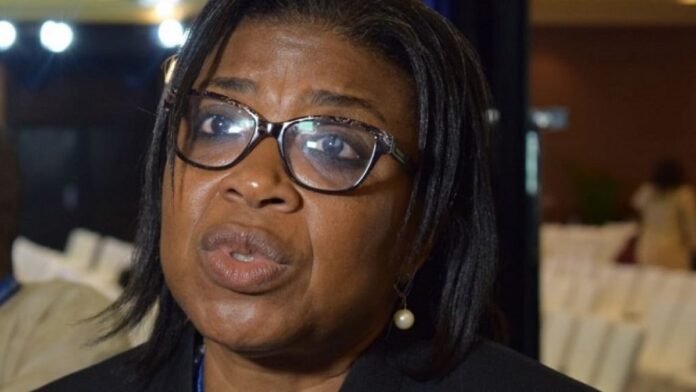Nigeria Breaks No World Bank Disclosure Rule – DMO
The Debt Management Office (DMO) has described as ‘false’, the news going round in some media outlets, that Nigeria failed the World Bank’s Disclosure Rule. According to a statement by the DMO on Thursday to clarify the situation, there has been no publication by the World Bank accusing Nigeria of failing its disclosure rule.
The statement was a response to recent media reports which indicated that the World Bank accused Nigeria of failing to publish its Annual Borrowing Plans (ABP). The office said that Nigeria is one country that had imbibed the principle of transparency in public debt.
“The website of the focal agency for this purpose, the DMO, is frequented by diverse individuals and institutions within and outside Nigeria, searching for information on Nigeria’s public debt.
“The DMO’s website is filled with detailed information on public debt, including debt by source, instrument, and maturity, amongst others. The website also includes debt management strategy and debt sustainability analysis,” it said.
Faulting some specific claims in the report, the DMO said that the country’s annual borrowing plans were usually contained in the annual budgets.
“The total borrowings are listed in three categories – new domestic borrowings; new external borrowings and draw down bilateral and multilateral loans.
The public debt stock is published quarterly on the DMO’s website. This is supported by periodic physical and virtual media briefing sessions,” it said.
It added that guaranteed debt (contingent liabilities) were listed by name and amount in its website. It said that information on recently contracted loans were as at Dec. 31, 2019 and Dec. 31, 2020.
“Instrument coverage is comprehensive as borrowing instruments for external and internal debts are disclosed in the quarterly debt reports and annual reports, both of which are published in the DMO’s website,” it said.
Nigeria Faces No Debt Distress, DMO Reacts
The Debt Management Office (DMO), says Nigeria does not face the risk of experiencing “debt distress” due to its 15.9 billion dollars Eurobonds. The DMO said this in a statement posted on its website on Wednesday.
The statement was in reaction to an alarm raised by a member of the Monetary Policy Committee (MPC) of the Central Bank of Nigeria (CBN), Robert Asogwa.
Asogwa had expressed worry over the country’s rising debt, particularly the increasing accumulation of Eurobonds in the external debt component.
“The unexplained government preference of Eurobonds at high interest costs, with the associated exchange rate, risk may likely hurt Nigeria sooner than anticipated.
“The escalating fiscal sector deficits with the attendant rising debt ratios are part of the weak links in the domestic economic environment.
“The poor revenue growth in a period of expanding government expenditures has continued to soar the budget deficit levels in the first quarter of 2022, similar to the trend witnessed in 2021,” he said.
According to the DMO, Asogwa’s statements might have been made without consideration for the country’s borrowing needs as captured in the Annual Budgets, Medium Term Expenditure Framework and the Debt Management Strategy.
It said that successive Debt Management Strategies had always indicated that the Federal Government’s preferred source of borrowing was concessional sources rather than commercial sources like Eurobonds.
“For instance, one of the objectives of the Debt Management Strategy 2020-2023 is maximising funds available to Nigeria from multilateral and bilateral sources in order to access cheaper and long tenored funds,” it said.
It said that it was an indication that the authorities took cognisance of the limited funding envelopes available to the country due to its classification as “Lower-Middle-Income country”.
“Given the size of new borrowings in the annual budgets over the years, it will not have been proper for the Federal Government to raise all the funds from the domestic market.
“That will result to government crowding the private sector and raising borrowing rates. Consequently, some part of the required funding has to be raised externally,” it said.
The DMO said that concessional loans, though relatively cheaper, were limited in amount and were not available for financing infrastructure and other capital projects.
“Thus, Nigeria accesses concessional and semi-concessional loans as may be available, while issuing Eurobonds to part-finance the annual budgets and the infrastructure projects contained therein, ” it said. In the fear of the country slipping into debt distress, the DMO emphasised the need to generate more revenues, significantly beyond the current levels.












